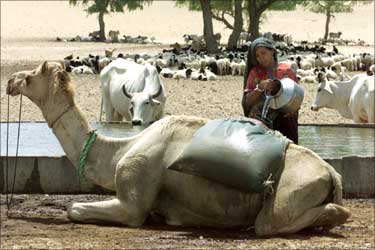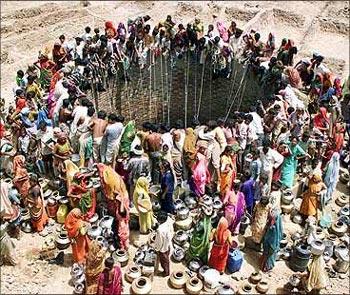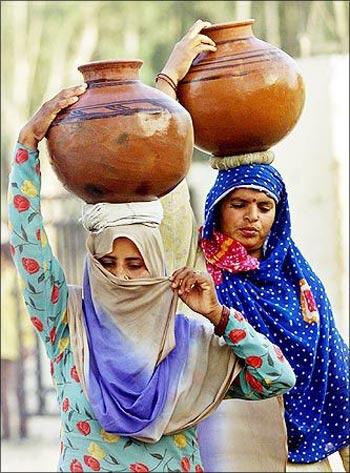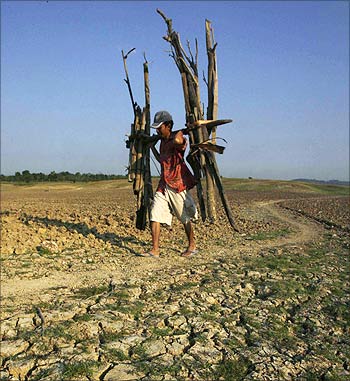
Indians believe in holidays. But for years the most common reason given for getting away was to visit one's native place or on a pilgrimage.
The world order is changing and so is the aspiration of the urban populace. The concept of a holiday where you let your hair down and relax has become the way of life.
But with more and more people flocking major tourist destinations, a section of urban India has increasingly been denied the luxury of a family holiday because of unreasonably high rates.
But now you can experience the rustic charms of rural India in a predominantly natural environment, where seasonality and local events blend with its culture, heritage and traditions.
Rural tourism in the country is still evolving and The Rural Tourism Network Enterprise is here to make life simple, yet attractive.
Click NEXT to read further. . .

RTNE, a social enterprise, is offering tourist retreats to those who cannot afford to spend more than Rs 300 a day.
In a modified version of a home-stay, the organisation has worked out a business model for the aam admi -- a professionally-run package for the budget tourist.
Former banker Nachiket Mor, a member of the board of the IFMR Trust, which has given shape to the RTNE, describes his own experience of a holiday he sampled in one of the home stays it had set up.
That was a low budget stay at a fisherman's cottage in Sindhudurg, the fisherman being one of the rural entrepreneurs created by the network.
"When I stay in five star hotels in Goa, the sea is far away. But here it was close by and the room was comfortable. For an extra Rs 100 there was good home made food too."
Click NEXT to read further. . .

Intending to create a back-end platform that would help the property owner, travel agent and the tourists, RTNE provides information specific to each one's needs, always keeping its sight on a low budget.
RTNE identifies local entrepreneurs to form a Destination Management Company -- more like a franchise.
These entrepreneurs identify village households or small low-cost hotels that are ready to take guests in their homes or outhouses.
The franchisee then trains these households on the minimum standards required to run a healthy and tourist-friendly administration.
While they keep track of availability of rooms, for every Rs 500 a household gets for a room, Rs 100 goes to the franchisee and Rs 100 to RTNE.
Click NEXT to read further. . .

In return, RTNE provides tourist traffic and trains the franchisee, besides providing access to finance to improve amenities.
At present there are three franchises operating in Konkan, Maharashtra. Eight more have signed up with RTNE.
Tamil Nadu, Uttarakhand and Himachal Pradesh have also set the ball rolling.
Says IFMR Trust president Bindu Ananth: "We have 400 rural properties now and this initiative is a kind of pioneering one in the country as far as rural home stays are concerned."
Mor said if 100 fishermen enroll and upload photographs of their facilities on the RTNE website, tourists start turning up through the network and its several partners.
Then, the DMCs identify more entrepreneurs in the area to form sub franchisees.
Click NEXT to read further. . .

"The entire Konkan beach is covered by several DMCs now," he said. The scheme helps the fishermen earn more too.
These fishermen who were earning Rs 2,000 daily for a catch and then sharing the profit among themselves, now have access to more cash following the RTNE initiative, said Mor who is also the ICICI Foundation president.
RTNE has also built on a network of supply chain links like Holiday IQ, Konkan Yatra, Bharat Homestay, Kamat Eco tours and Must See India, among others.
It has also tied up with a microfinance website Rang De, which gets loans for members by advertising their needs on its website.
The per-day rate at these destinations ranges between Rs 200 a day to Rs 1,500 a day. "If a cottage has a western toilet it is more expensive," said Mor.
"It is all about persuading lower middle-class people to go on a holiday and explore the unexplored destinations of India that are out of the purview of the big budget tourism packages."